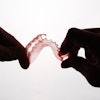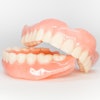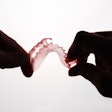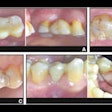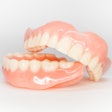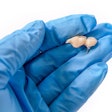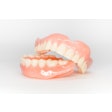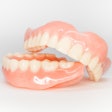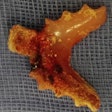A study published in the Journal of Periodontology (September 2008, Vol. 79:9, pp. 1,617-1,619) suggests that edentulous adults may be more likely to have chronic kidney disease (CKD) than dentate adults.
In the study, conducted at Case Western Reserve University, endentulism was found to be significantly associated with CKD, indicating that oral care may play a role in reducing the prevalence of chronic kidney disease in the U.S. population.
The study examined the kidney function and periodontal health indicators, including dentate status, of 4,053 U.S. adults 40 years of age and older. After adjusting for recognized risk factors of CKD such as age, race/ethnicity, and smoking status, the results revealed that participants who lost all their teeth were more likely to have CKD than patients who had maintained their natural dentition.
"The rationale for examining edentulous adults in this study is to observe the long-term effects of periodontal disease on the presence of chronic kidney disease," noted study author Monica Fisher, Ph.D., D.D.S., in a press release. "Periodontal disease is a leading cause of tooth loss in adults; therefore, endentulism is considered to be a marker of past periodontal disease in the study's participants."
While additional research is needed to fully understand why tooth loss is associated with higher prevalence of CKD, the destructive nature of chronic inflammation may play a role, the study suggests. Both periodontal disease and chronic kidney disease are considered inflammatory conditions, and previous research has suggested that inflammation may be the common link between these diseases. Because untreated periodontal disease can ultimately lead to tooth loss, edentulous patients may have been exposed to chronic oral inflammation.
According to David Cochran, D.D.S., president of the American Academy of Periodontology (AAP), treating periodontal disease can do a lot more than save teeth.
"Researchers have long known that gum disease is related to other adverse health conditions, and now we can consider chronic kidney disease to be one of them," he said. "It is exciting to think that by controlling periodontal disease and therefore helping to preserve natural dentition, the incidence and progression of CKD may be reduced."
